

On Tuesday San Francisco voters approved by a 77 to 23 percent margin Proposition J, which will increase the city’s minimum wage from the current $10.74 per hour to $12.25 per hour by May 1, 2015. The city’s minimum wage would climb to $13 per hour by July 2016; to $14 per hour by July 2017 and $15 per hour by July 2018.
“Prop. J will provide a much needed raise to $15 per hour for 140,000 of the lowest paid workers in our city,” Gordon Mar, executive director of Jobs with Justice, San Francisco, told Capital & Main. “Prop. J will also raise the bar nationally for minimum wage policies.”
The “Fight for $15” to gain a higher minimum wage for workers began in Seattle, Washington. Voters there, with Socialist Alternative city council member Kshama Sawant spearheading a grassroots movement,
» Read more about: Big Bay Area Victories for Living Wages »
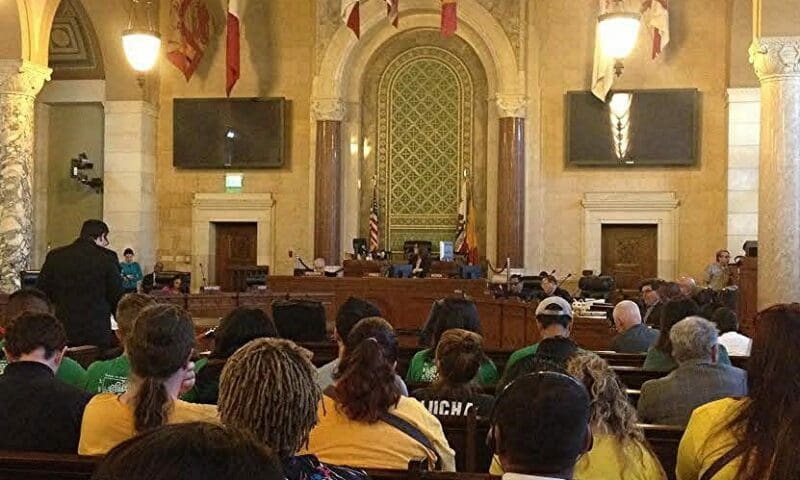

Los Angeles City Council members convened Tuesday for an Economic Development Committee hearing on a motion that would raise the minimum wage for workers in the City of Los Angeles to $13.25 per hour beginning in July 2017, and link future wage hikes to the Consumer Price Index. The motion also calls for an independent study on the economic impact of raising the minimum wage to $15.25 per hour after 2017. Councilmembers further discussed a closely related motion that would focus on the challenge of implementing and enforcing the new wage laws.
Supporters from a variety of local community and labor organizations, each wearing different colored T-shirts, showed up to back the wage increase, including from the Koreatown Immigrant Workers Alliance (KIWA), Alliance of Californians for Community Empowerment (ACCE), L.A. Black Workers Center and Restaurant Opportunities Center Los Angeles (ROC-LA), among others. The hearing, which came just a month after Council members voted to raise the minimum wage to $15.37 for certain hotel workers,
» Read more about: Citywide Wage Hike Gets First Council Hearing »
With Los Angeles Mayor Eric Garcetti and six city council members proposing an increase in the minimum wage, the issue sits firmly on the front burner of L.A. government. Of course the Chamber of Commerce and its allies wring their hands and predict disaster, and some economists are throwing scary statistics back and forth.
Will raising the minimum wage to a livable income raise prices? Probably a bit in some parts of the economy. Will people lose their jobs? Probably a few in some sectors, for a short time. Will the economy grow as a result of poor people having more income to spend? Again, probably. Will life be better for low-wage working families? Undoubtedly.
Minimum wages should provide enough income for working families to put shelter over their heads, food on their tables and clothes on their backs. Employers should pay working people enough to not require government and taxpayers to supply the basic needs of a family.


If you watched the Roosevelt series on PBS, as I did, you might have been struck by how Teddy and FDR saw their presidential duties. Both acted on the belief that the role of the federal government was to secure the material wellbeing of the American people. In their eyes the central government had a responsibility for full employment, living wage jobs and reining in the power of corporate America, among other initiatives. They took responsibility for how the national economy impacted the ordinary citizen and saw government action as a vehicle to reverse economic suffering.
Fast forward to the present. We now have a largely paralyzed federal government, consumed in debate over whether or not government action is a curse or a blessing, and unable or unwilling to address the widening income gap. In response, many major American cities are stepping into that pro-active, Roosevelt role; new minimum wage laws have been passed,
» Read more about: The Minimum Wage: A New Deal for Los Angeles Workers? »


OAKLAND – The growing nationwide movement by cities and counties to raise the minimum wage is currently centered here in the Bay Area, and its success couldn’t be more urgent for workers like John Jones III.
Jones, 40, is a licensed aircraft mechanic but works as a Burger King security guard in downtown Oakland, making $10 an hour — $1 more than California’s minimum wage. His life is a series of financial challenges and daily indignities as he struggles to support his wife D’Nita, his 12-year-old son Kai and his newborn boy, Josiah.
To take a shower in his apartment, Jones has to use pliers to turn on the water because the knobs are broken. He can’t complain to his landlord because he’s behind on the rent. When his family runs out of toilet paper, Jones cuts paper towels into quarters to save a few bucks. He covers the windows in his bedroom with blankets because he can’t afford curtains.
» Read more about: Bay Area Cities Set Sights on Raising Their Minimum Wage »
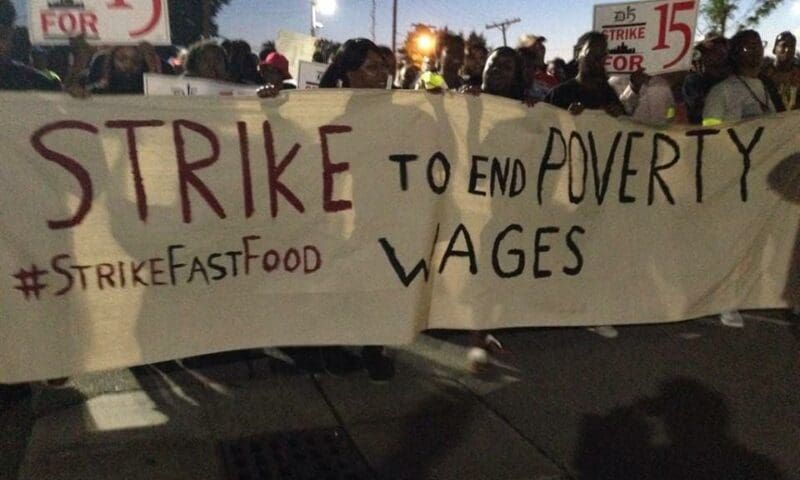
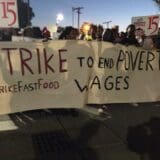
Seattle Mayor Ed Murray used last May Day to announce that business and labor had agreed to a historic plan to raise the minimum wage to $15 an hour. Seattle’s bold measure is part of a growing wave of activism and local legislation around the country to help lift the working poor out of poverty. The gridlock in Washington – where Congress hasn’t boosted the federal minimum wage, stuck at $7.25 an hour, since 2009 – has catalyzed a growing movement in cities and states.
The Seattle victory was a game-changer. Within months, politicians in other cities jumped on the bandwagon. San Diego city officials voted in August to adopt a $11.50 an hour by 2017. In San Francisco, which already has a citywide minimum wage, voters will decide in November whether to raise it to $15.
On September 24, the Los Angeles City Council voted by a 12 to 3 margin to require large hotels to pay at least $15.37 an hour to their workers.
» Read more about: A Movement Raises the Minimum Wage and Changes the Debate »
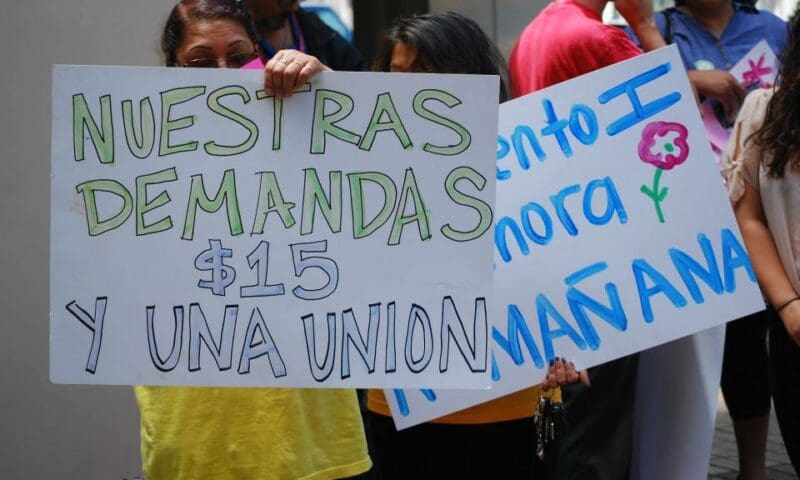
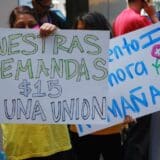
The recent Los Angeles City Council vote to raise hourly pay for 10,000 hotel workers to $15.37 could be part of an historic groundswell to create a new minimum wage across Los Angeles and beyond.
The Los Angeles City Council is expected to soon take up an introductory motion that would raise compensation for more than half a million employees throughout the city now laboring at California’s minimum $9 hourly standard.
Los Angeles Mayor Eric Garcetti, who rolled out the proposal on Labor Day with eight council members at his elbow, commissioned an impact study that calculates some 567,000 workers would benefit from the pay raise by 2017.
Garcetti has proposed a wage of $13.25 an hour, which would result in an annual wage boost of $3,200 per worker. Some advocates are pushing for a higher wage, as well as other provisions including paid sick days and strict enforcement to guard against wage theft.
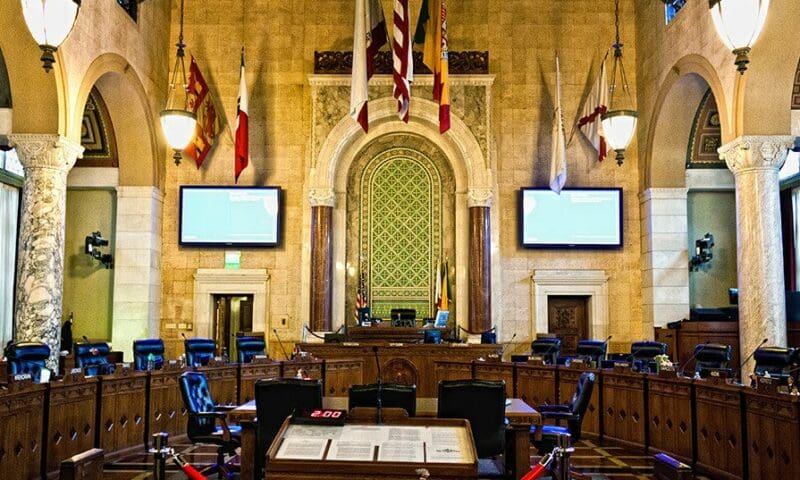

Thousands of low-wage workers in Los Angeles are poised to receive a substantial pay bump, depending on a critical City Council vote scheduled for Wednesday. On the table: a $15.37 hourly wage for hotel employees at some of the biggest and most lucrative non-unionized hotels in the City of Los Angeles.
In June a Los Angeles City Council committee directed city staff to draft an ordinance that would require hotels with 300-plus rooms to meet a $15.37 hourly wage benchmark by July 2015. Hotels with more than 125 rooms would have to meet the standard in 2016. The full council is expected to take up the proposal Wednesday morning after a Tuesday hearing at the Economic Development Committee.
Business interests complain that the measure would cost jobs, but proponents argue that tourism and the hotel industry are experiencing record growth and creating local jobs. A study prepared by the Economic Roundtable,
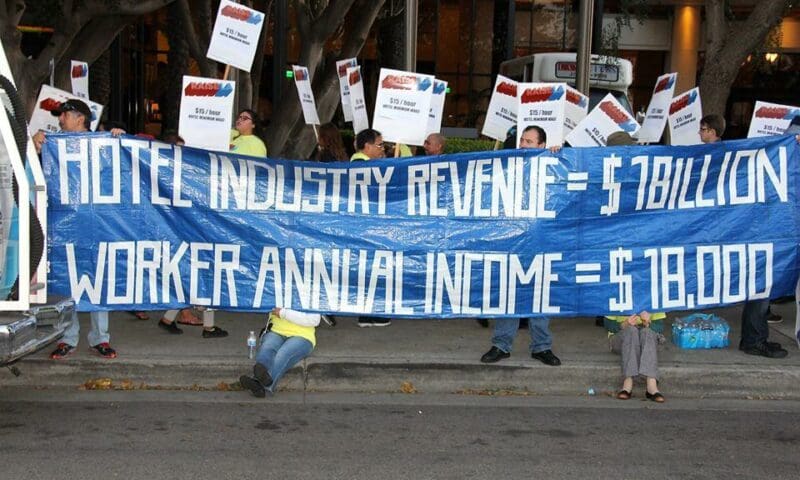
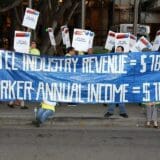
When asked by the Los Angeles Times to explain the movement to raise the minimum wage for the city’s hotel workers, one worker said, “At $15 [an hour], we can make it. We can live just a little bit better, not drowning all the time.”
It’s no surprise that hotel workers would be in favor of having raising their hourly minimum wage raised from $9 to $15.37, as is currently being proposed. Nor is it surprising that they’ve found support from the extensive network of liberal organizations and labor unions in the L.A. area. Less predictably, however, many members of L.A.’s business community, ranging from 750 small business owners to shopping mall developers Rick Caruso and the Westfield Group, have endorsed the proposed legislation as well.
In a letter to Councilmember Mike Bonin, Westfield co-CEO Peter Lowy indicated his organization’s support for such a measure. Lowy described Westfield’s experience with the living wage requirements currently in place at Los Angeles International Airport and said that “the continued growth and prosperity of this City is vital not only to [Westfield’s] centers,
» Read more about: L.A. Hotel Workers Move Closer to $15.37 Hourly Minimum Wage »
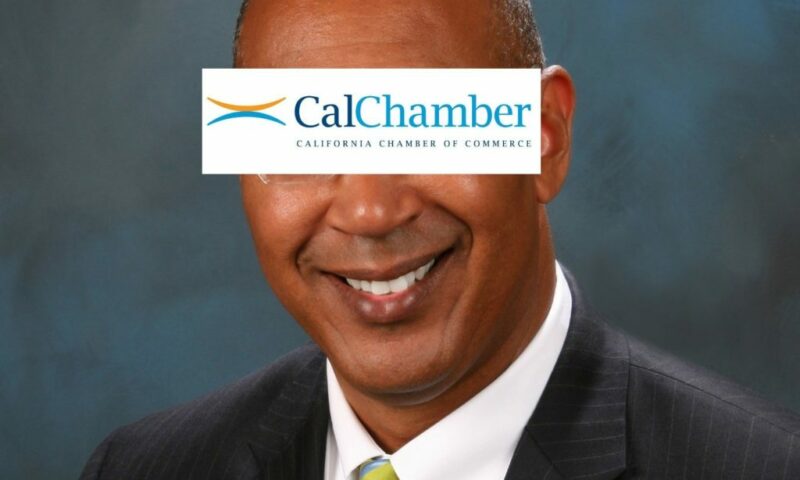

On Wednesday, Assemblymember Chris Holden (D-Pasadena) thwarted an effort to raise California’s minimum wage. By abstaining, he helped kill a proposal to raise the wage to $13 an hour in 2017.
Many of Holden’s constituents are wondering: Why? Is Holden one of those “corporate Democrats” that Pulitzer Prize-winning journalist Gary Cohn has recently exposed in eye-opening reports? Although Holden often supports pro-union bills, he typically looks to find pro-business compromises to secure his “yes” vote on labor-oriented legislation. His abstention on the minimum wage bill was a “big disappointment,” according to a key union activist in Sacramento.
Across the country, there’s a growing movement to address the nation’s widening economic inequality. One key part of this movement is the accelerating wave of cities and states seeking to raise the minimum wage. President Obama has proposed raising the federal minimum wage to $10.10 an hour.
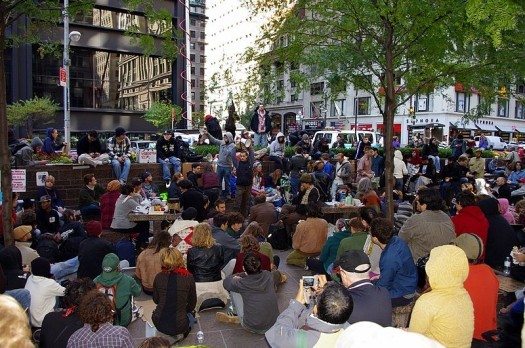

An idea that only a year ago appeared both radical and impractical has become a reality. On Monday, Seattle struck a blow against rising inequality when its City Council unanimously adopted a citywide minimum wage of $15 an hour, the highest in the nation.
This dramatic change in public policy is partly the result of changes brought about by last November’s Seattle municipal elections. But it is also the consequence of years of activism in Seattle and around the country. Now that Seattle has established a new standard, the pace of change is likely to accelerate quickly as activists and politicians elsewhere seek to capture the momentum. Five years from now, Americans may look back at this remarkable victory and wonder what all the fuss was about.
Seattle now joins a growing list of cities—including San Francisco, Santa Fe, Albuquerque, San Jose,
» Read more about: How Seattle’s $15 Minimum Wage Victory Began in Zuccotti Park »


Are zero-dollar pay stubs and sub-minimum wages really what keep the restaurant industry afloat? That’s what one powerful lobbying group would have us believe.
Taylor Lee can tell you the real impact of minimum wages for tipped workers. Taylor is a 23-year-old restaurant server working in Berkeley, California. Like two-thirds of tipped workers, she is a woman. In California, the minimum wage is currently $8 per hour, whether you get tips or not. This is the amount that Taylor’s employer pays her, “but with tips, if it’s really slow, I make $12 per hour,” she says. “My average wage is about $18-20 per hour.”
From 2006 to 2013, Taylor worked as a server at restaurants in Florida. The minimum wage in Florida is $7.93, but the minimum wage for tipped workers is $4.91. She worked at a Japanese restaurant as a server. If she didn’t get enough tips to make it to $7.93 per hour,


After years of neglect, the minimum wage has suddenly become a major national issue. President Obama has proposed an increase in the federal minimum to $10.10 an hour, fast food workers are agitating for $15, and candidates who back a higher wage floor, including an avowed socialistin Seattle, are winning local elections. In February, the retailer Gap Inc. announced that it was implementing a nationwide minimum wage for 65,000 of its own 90,000 employees (although only $9 an hour).
The minimum wage is an important issue in other countries as well, although we rarely hear about these cases.
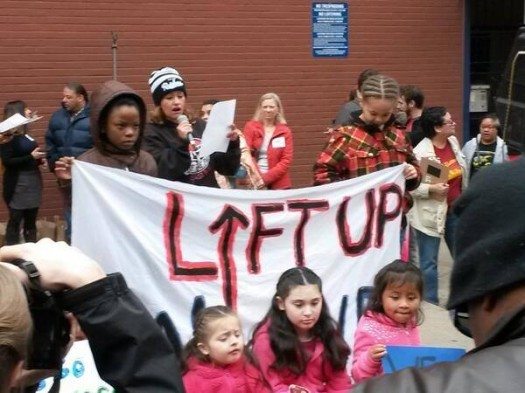

A man wearing the uniform and cap of a fast-food worker, his apron tucked into a pant pocket, approached a clerk at the Alameda County Social Service Agency. As he handed over documents for his public assistance benefits claim, the man explained how it had felt to be waiting in the lobby for the past several hours:
“I was the first here and the last to leave.”
“You should get a pay check!” the clerk responded.
The reality is that this man does “get a paycheck” from his minimum wage job, but finds himself unable to meet his basic needs. This is a common scene at my office in Oakland and public assistance offices across the country.
This month’s National Association of Social Workers’ theme is “All People Matter,” chosen to remind us of our profession’s commitment to improving social conditions for all.
» Read more about: ‘All People Matter’ — It’s Time to Raise the Minimum Wage »
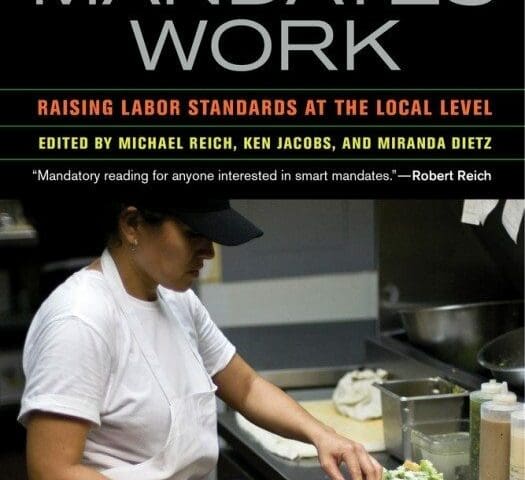
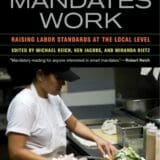
Forget, for the moment, downer news stories coming out of Midwestern statehouses, Southern auto plants and sundry federal courts. A new book edited and co-written by three Bay Area researchers optimistically chronicles what can be accomplished when progressive politicians and a determined electorate, backed by an energetic union movement, tackle income inequality, health care, labor peace and other challenges. When Mandates Work: Raising Labor Standards at the Local Level, edited by Michael Reich, Ken Jacobs and Miranda Dietz, parses a dozen years of legislation passed by San Francisco voters or their board of supervisors. Thanks to 10 ordinances enacted between 1996 and 2008 —
In an interview with Capital &
» Read more about: How San Francisco Created a New Social Compact: An Interview With Ken Jacobs »

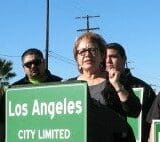
There was a time when we listened to science, leaned forward when its experts spoke about smoking, clean air and water, or the need for something called a seatbelt. But that was long ago, before corporate interests convinced us that the best policy for just about any social crisis was to do nothing. Today research surveys that statistically demonstrate the benefits of raising the minimum wage have about the same chance of being heard above the denial din as climate change papers.
Nevertheless, the authors of Effects of a Fifteen Dollar an Hour Minimum Wage in the City of Los Angeles, a new study conducted by the Economic Roundtable and funded by the Los Angeles County Federation of Labor, hope to open some very closed minds about these economic benefits. Tuesday the two groups released the study at a media event held on a corner of Lafayette Park.
» Read more about: 7.6 Billion Reasons to Raise L.A.’s Minimum Wage »
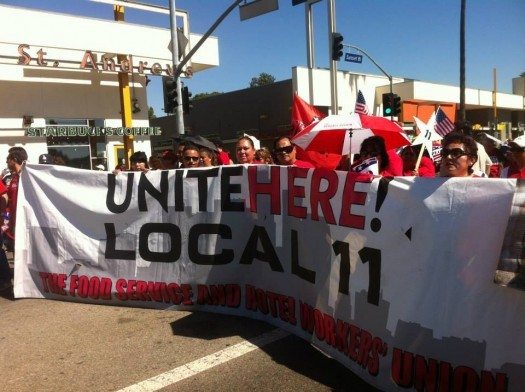
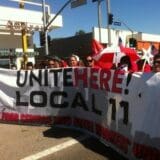
Today’s Los Angeles Times features front-page coverage of the Raise LA campaign, a new effort to improve the standard of living for workers employed by L.A.’s larger hotels. James Rainey’s piece, which appeared online late yesterday (as did a story on Raise LA by Nancy Cohen in The New Republic), noted that while a relatively small number of L.A. hotel workers enjoy the protections and benefits of union membership, most of the city’s hotel housekeepers, busboys and maintenance workers are mired in jobs that pay little more than California’s minimum wage of $8 per hour. Raise LA aims to create an hourly minimum wage of $15.37 for employees who work at hotels with of 100 rooms or more.
In 2012 Long Beach voters passed a similar law for its hotel workers, increasing their minimum wage to $13 an hour.
» Read more about: Minimum Wage Battle Checking in to L.A. Hotels »


‘Tis the season of miracles.
That’s not a phrase that sits easily with the modern mind. Nevertheless, the stories with which we mark this time of year all contain gestures, unexpected motions and things hoped for — but that are not at all certain or even vaguely possible. The lamp held enough oil for a couple of days at most, but it stays lit for eight – until more can be brought from a distance. A peasant sees the Virgin Mary but, of course, the local bishop doesn’t believe that such a simple person would be visited by Her, but another vision accompanied by long-stemmed red roses convinces him. A poor working family bears a child in circumstances no middle class American can quite grasp, and people think this one will be the liberator of his people. Those are miracles.
Of course, these stories update a deeper and even older human experience when the ancients awaited the sun’s return.


Last week the voter-approved $15 minimum wage set for airport-related workers near the town of SeaTac, Washington, survived a recount and is now supposed to go into effect on January 1. The win sets a new standard for pay and benefits for hospitality and transportation workers, and will bring much-needed financial relief for low-wage workers who cater to millions of travelers at one of the country’s busiest international airports. SeaTac’s Proposition 1, which voters initially approved last month, will bring much-needed improvements to the lives of more than 6,300 workers who currently bring home less than $1,500 per month on average. Backers of the historic measure say the new minimum wage for SeaTac workers will stimulate the local economy to the tune of $54 million per year.
Predictably, the corporate interests who’ve so far ended up on the losing side have no intention of simply bowing down to the will of the city’s voters.
» Read more about: SeaTac Workers Await Ruling on New $15 Minimum Wage Law »


This Walmart low-prices, low-wages thing isn’t working out so well — even for Walmart.
The company released its quarterly numbers last week, and they weren’t pretty. Same-store sales declined by 0.3 percent, and the company lowered its earnings-per-share forecast. Bad news wasn’t limited to Walmart. At the low end of the retail consumer market, Kohl’s reported similarly bad news; Macy’s, a little higher up the food chain, lowered its earnings forecast as well.
While Americans with money are boosting both the housing and auto markets, the growing number of Americans without are curtailing their shopping. As Douglas McMillon, chief executive of Walmart International, noted last week, “When we do see good things in the economy, sometimes they don’t immediately flow through to a paycheck. Remember how the average American lives.”
And who signs more paychecks than any private-sector employer on the planet?